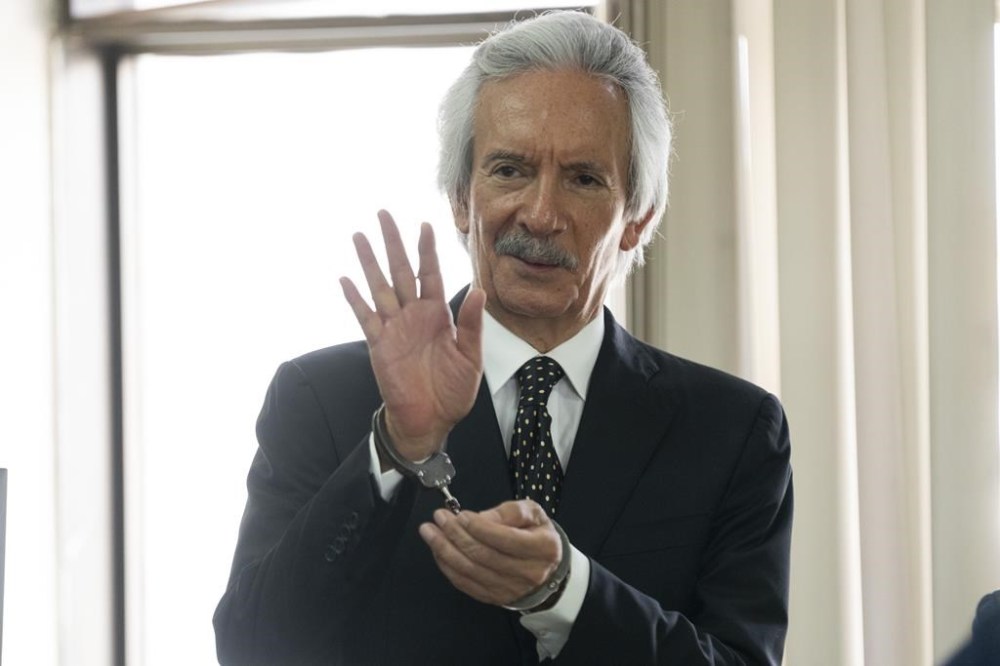Guatemalan appeals court revokes order to grant house arrest to journalist José Rubén Zamora
Advertisement
Read this article for free:
or
Already have an account? Log in here »
We need your support!
Local journalism needs your support!
As we navigate through unprecedented times, our journalists are working harder than ever to bring you the latest local updates to keep you safe and informed.
Now, more than ever, we need your support.
Starting at $15.99 plus taxes every four weeks you can access your Brandon Sun online and full access to all content as it appears on our website.
Subscribe Nowor call circulation directly at (204) 727-0527.
Your pledge helps to ensure we provide the news that matters most to your community!
To continue reading, please subscribe:
Add Brandon Sun access to your Winnipeg Free Press subscription for only
$1 for the first 4 weeks*
*$1 will be added to your next bill. After your 4 weeks access is complete your rate will increase by $4.99 a X percent off the regular rate.
Read unlimited articles for free today:
or
Already have an account? Log in here »
Hey there, time traveller!
This article was published 25/06/2024 (466 days ago), so information in it may no longer be current.
GUATEMALA CITY (AP) — A Guatemalan appeals court on Tuesday revoked a judge’s order to give house arrest to journalist José Rubén Zamora, known for railing against corruption in the Central American country.
The reporter has been in prison for two years, something that has sparked outrage by press freedom groups across the world.
Guatemala’s prosecutors appealed a judge’s decision in May to grant him house arrest. However, the lower court order did not result in him being freed because there is a second detention order as the prosecutor’s office pursues two separate cases against him.

Zamora, 67, has been in prison since July 2022, when he was charged by the Public Prosecutor’s Office with money laundering, amounting to some $38,000, and in June last year he was sentenced to six years in prison. The sentence was suspended by a court decision due to errors in the process.
The journalist has denied the accusations and has questioned why he was not allowed to provide evidence in his favor during the trial to clarify the origin of the money.
“I can defend myself, because I am innocent,” he told The Associated Press in an interview in May.
Zamora is the former president of the Guatemalan newspaper El Periódico, a daily specializing in anti-corruption reporting that disappeared after his arrest.
Press freedom groups have labeled Zamora’s detention a political prosecution. Zamora concurs. He contends his legal problems were engineered by then President Alejandro Giammattei, who appeared many times in the pages of El Periodico accused of corruption.
Zamora believes his newspaper’s critical reporting on Giammattei’s administration led to the prosecutions by Attorney General Consuelo Porras, who Giammattei put up for a second term before leaving office.
The journalist has said his treatment in prison has improved bit since left-of-center President Bernardo Arévalo took office in January, but added that he still is harassed sometimes by guards.
Arévalo, who had been considered a long-shot candidate of the Seed Movement party, was elected in August after voters angry at widespread corruption and leaders’ failure to tackle it gave him a decisive victory.
Some of his promises focused on cleaning up corruption in Guatemala, such as getting Porras out of the Public Ministry, although she remains in the post. Arévalo said he would not remove her by force.
Guatemalan prosecutors such as Porras have been sanctioned by the U.S. government and 40 other countries, accused of hindering the anti-corruption fight and undermining its democracy.
